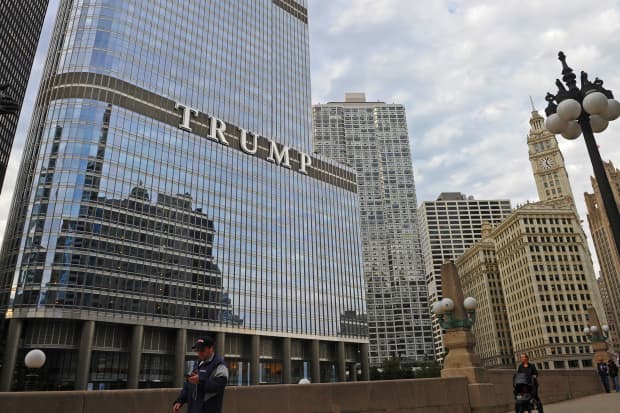This post was originally published on this site

A man walks in front of the Trump International Hotel & Tower in Chicago in 2016.
AFP via Getty Images
Since 2010, lenders have forgiven President Donald Trump about $287 million in debt that he had failed to repay, the New York Times reported Tuesday.
Citing Trump’s federal tax-return records, the Times reported that the vast bulk of that sum was related to a skyscraper in Chicago that failed to live up to expectations. Banks and hedge funds gave him years of extensions to repay loans on the underperforming hotel-and-condominium property, the Times said, and his biggest lender, Deutsche Bank DB, -3.04%, lent him another $99 million even after he had sued the bank, accusing it of predatory lending practices.
Amid the height of the financial crisis, Trump’s loans came due, but without an ability to pay, he instead received extensions, the Times reported.
Deutsche Bank eventually sought repayment of its loans, accusing Trump of being a habitual deadbeat, according to the Times, with some executives vowing to never again to business with Trump. In July 2010, Trump, Deutsche Bank and other lenders reached a private settlement, canceling about $270 million in debt, the Times found.
The Times described Trump’s Chicago dealings as an “example of his ability to strong-arm major financial institutions and exploit the tax code to cushion the blow of his repeated business failures.”
“In many ways, it repeated a pattern that had played out more than a decade earlier at Mr. Trump’s Atlantic City casinos: a cycle of defaulting on debts and then persuading already-burned lenders to cut him a break,” the Times wrote.
Trump avoided paying income taxes on most of that, the Times found. The canceled debts — which typically would have been counted as income on his tax bill — are part of a broader investigation by New York’s attorney general into possible tax fraud, the Times said. The Trump Organization’s chief legal officer told the Times that Trump properly paid all taxes due on his canceled debt.


